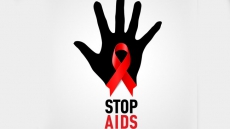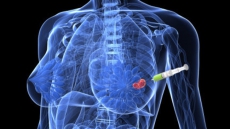In a key discovery against HIV, researchers have shown that an anti-cancer drug can activate hidden HIV to levels readably detectable in the blood by standard methods.
The anti-cancer drug romidepsin increased the virus production in HIV-infected cells between 2.1 and 3.9 times above normal.
"The viral load in the blood increased to measurable levels in five out of six patients with HIV infection," informed the team from Aarhus University and Aarhus University Hospital in Denmark.
Presenting the results at the ongoing international AIDS conference (AIDS 2014) in Melbourne, Australia, researchers said the findings open possibilities of a vaccine to strengthen the ability of the immune system to fight HIV.
HIV can hide in a "state of hibernation" in the CD4 cells.
These cells are a part of the body's immune system, but the CD4 cells cannot fight the virus themselves; killer T-cells can.
However, killer T-cells cannot tell if a CD4 cell contains "hibernating" HIV virus.
In the new findings, when the virus is activated and moves towards the bloodstream, it leaves a trace on the outside of the infected CD4 cells.
"In principle, this means that the killer T-cells can now trace and destroy the HIV-infected CD4 cells," said senior researcher Ole Schmeltz Sogaard.
In addition to measuring the increased viral load in six HIV-infected patients, researchers tested the side effects of the medicine.
The test participants experienced transient fatigue and nausea, which are known side effects of romidepsin.
"The next step is a bigger trial where the researchers will combine romidepsin activation of hidden HIV with a vaccine (vacc-4x) to strengthen the ability of killer T-cells to fight HIV virus," Sogaard concluded.





